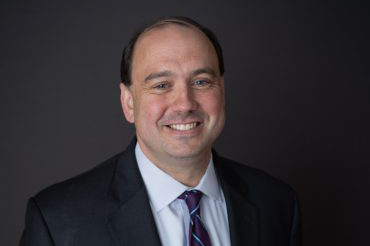Democracy isn’t just a theoretical concept, and as BC Law Dean Vincent Rougeau reminded students involved with the Good Governance Project (GGP) last week, it requires a real understanding and dialogue about how the process works.
GGP is a group of BC Law students putting feet to pavement, hoping to improve the policies underpinning our modern political systems.
The organization was formed through a partnership between the Clough Center for Constitutional Democracy and Boston College Law School and is organizing around reform efforts for gerrymandering, campaign finance, ranked-choice voting, and voter suppression among other issues.
“During my 1L year, I felt that there was not a place or club through which I could pursue my interest in campaign finance reform,” GGP President Matthew Victor ’22 said. “The Good Governance Project seeks to fill that void, and provide structure and resources for students interested in the critical work of democracy reform.”
The organization has already begun the process of forming cohorts of students to tackle these important issues in order to leverage the student voice on reform advocacy.
On October 1, the organization had their kickoff event featuring several notable reformers in the space: Massachusetts State Senator Jamie Eldridge ’00 (above); former MA assistant attorney general and president of American Promise Jeff Clements; entrepreneur and former Tennessee congressman Zach Wamp; and Sara Eskrich, executive director of Democracy Found. Dean Rougeau moderated the conversation.
Senator Eldridge, who first won his seat in the Massachusetts legislature through a publicly financed campaign, stressed the importance of both transparency and confidence in government decision making. “The legislative process continues to be very confusing for people,” Eldridge said. “I think there needs to be a lot more transparency about what the process is.”
Clements of American Promise discussed his organization’s proposed Constitutional Amendment, which would seek to distance the Democratic process from the influence of big money in politics.
“This has been a long time in the making. And I think the moment is now. So what we are built to do is create what is very hard and unusual in this country right now— a place and a way for Americans of wide, different views, of divided opinion, of divided politics to join together to seize this moment of national consensus,” Clements said.
Wamp also emphasized the importance of consensus building, and highlighted the generational differences in activating citizens to be active in their democracy.
“I want all young Americans to get more attention … because they actually know how to broadcast these things,” Wamp said. “The people from your law school, they enter the marketplace based on how they can communicate and this becomes a transformative generational issue.”
Eskrich of Democracy Found discussed ranked choice voting, which is a November ballot measure in Massachusetts. She argued that changing election incentives could encourage elected leaders to compromise.
“There is no real intersection for elected officials between acting in the public interest and their likelihood of getting re-elected in our current system,” Eskrich said. “And that is in many ways by design.”
Eldridge closed the event by encouraging students to continue raising the issue through advancing to leadership positions and prioritizing democracy reform.
“I do really think it’s important for law students or young lawyers to get involved in your community and raise these issues about all the systemic barriers to improving our democracy and providing common sense policy.”
Photo: State Senator Jamie Eldridge ’00 was among the panel of four speakers at GGP’s inaugural event.


